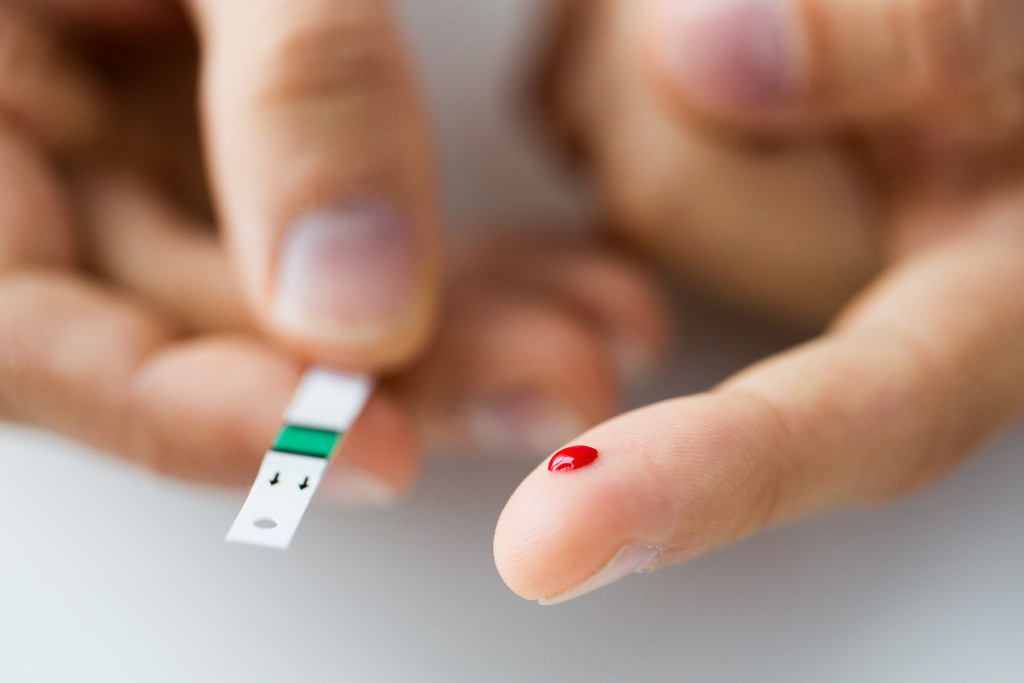- Americans consume an average of 200 extra calories daily from sugar-sweetened beverages alone, leading to weight gain.
- High cholesterol, insulin resistance, joint pain, and obesity are potential health risks of overindulging in sweet snacks.
- Tooth decay is another consequence; untreated cavities can cause pain and tooth loss.
- Healthy food choices and a balanced diet with fruits and vegetables, lean proteins, and whole grains can help reduce the risk of sweet snack addiction.
Sweet snacks can be particularly addictive, as the sugar content in these treats often triggers a rush of dopamine that can lead to an addiction-like state. This is especially true for individuals genetically predisposed to addiction, as the reward system hyperactivity can quickly lead to cravings and binging.
Research has found that sugary snacks can be as addictive as tobacco and drugs. In one study published by the American Psychological Association, participants rated their cravings for sweet snacks higher than those for cigarettes and marijuana. This suggests that sweet snacks have a powerful hold on people’s brains, resulting in solid cravings even when they know the health consequences of overindulgence.
The wide availability of sweet snacks further compounds the problem. According to the Centers for Disease Control and Prevention (CDC), Americans consume an average of 200 extra calories daily from sugar-sweetened beverages alone. This contributes to weight gain and increases one’s risk of developing type 2 diabetes, heart disease, and other chronic illnesses.
Unfortunately, the consequences for sweet snacks can be dire. Here are a few to watch out for:
Weight Gain

Weight gain is a common consequence of an addiction to sweet snacks. Consuming more calories than people need causes their bodies to store the excess energy as fat. In addition, sugary food tends to be high in simple carbohydrates and low in fiber, which can contribute to weight gain by spiking blood sugar levels and decreasing satiety. Regulating calorie intake or maintaining a healthy weight can be difficult for those struggling with weight management.
Additionally, an overreliance on sweet snacks can replace healthier food choices in our diets and lead to nutrient deficiencies due to the lack of vitamins and minerals in these foods. This further increases the risk of weight gain and other health issues associated with poor nutrition.
Here are a few consequences of weight gain for people addicted to sweet snacks:
High Cholesterol
High cholesterol is caused by the body producing too much low-density lipoprotein (LDL) cholesterol. A diet high in sugar can lead to increased LDL levels, which raises the risk of heart disease and stroke. In addition, people who are overweight or obese are more likely to experience higher than normal triglyceride levels, which can increase their risk of developing cardiovascular problems.
Insulin Resistance
Regular consumption of sweet snacks and sugary beverages can also cause insulin resistance, a condition in which cells cannot absorb glucose from the bloodstream. Insulin resistance increases the risk for type 2 diabetes and other serious health complications such as nerve damage and kidney disease.
Joint Pain
Joint pain is another consequence of a sweet snack addiction. Consuming excess sugar can cause inflammation, leading to joint pain and stiffness. Overeating sugar can also reduce the effectiveness of collagen, a protein that helps maintain healthy joints. Joint health will be significantly affected if a person is overweight or obese due to unhealthy snacking habits.
Obesity
Obesity is a severe health condition that an addiction to sweet snacks can cause. A person’s body mass index (BMI) will increase if they consume more calories than they burn off, leading to weight gain and other associated problems. Obese individuals are more likely to suffer from type 2 diabetes, heart disease, stroke, high blood pressure, and certain types of cancer.
Diabetes

Excess sugar consumption has been linked to an increased risk of type 2 diabetes. Sugar affects insulin levels and cells’ ability to absorb glucose from the bloodstream. When people consume too much sugar, they produce excess insulin to regulate blood sugar levels. Over time, this can cause the body to become resistant to insulin, leading to higher-than-normal blood glucose levels. This is known as insulin resistance, increasing one’s chances of developing type 2 diabetes.
There are several ways to manage diabetes and reduce the risk of health complications associated with this condition. For example, it is essential for those with diabetes or at risk of developing it to make healthier food choices and maintain a balanced diet. Eating various nutritious foods such as fruits and vegetables, lean proteins, healthy fats, and whole grains can help maintain healthy blood sugar levels. Additionally, exercising regularly has also been beneficial for diabetes management as physical activity helps improve muscle sensitivity towards insulin and regulates a person’s weight.
You should also consult a reliable endocrinologist to discuss the best options for managing diabetes and reducing your risk of developing severe health conditions. The medical professional will be able to provide advice on how to balance your blood sugar levels and help you create a plan that works for you.
Tooth Decay
The sugar content in sweet snacks is a significant contributor to tooth decay. When consumed, sugar interacts with bacteria on the surface of teeth and produces acid that can erode tooth enamel. The longer sugary snacks remain in contact with teeth, the higher the risk for cavities and other dental problems. Additionally, eating too many sugary snacks can cause plaque to accumulate on the teeth, leading to an increased risk of cavities and gum disease.
The consequences of tooth decay are significant and should not be taken lightly. If left untreated or neglected for too long, it can result in pain when eating or drinking hot or cold beverages. Moreover, advanced cases of tooth decay may require root canal treatment which is expensive and time-consuming. Tooth loss is another severe consequence of untreated cavities. It can have long-term implications on oral and overall health due to its effect on nutrition intake and digestion. Additionally, poor oral hygiene habits associated with sweet snack consumption could increase one’s risk for other diseases, such as heart disease or stroke, due to bacteria entering the bloodstream through infected gums or decaying teeth.
Final Thoughts
Sweet snacks can be incredibly addictive, and the consequences of consuming too many of them can be severe. People should strive to limit their sugar intake to reduce their risk of weight gain, high cholesterol, tooth decay, joint pain, insulin resistance, and obesity. Additionally, it is important to make healthier food choices and maintain a balanced diet that includes plenty of fruits and vegetables, lean proteins, and whole grains. These measures will help reduce your risk of developing severe health conditions associated with sweet snack addiction.

